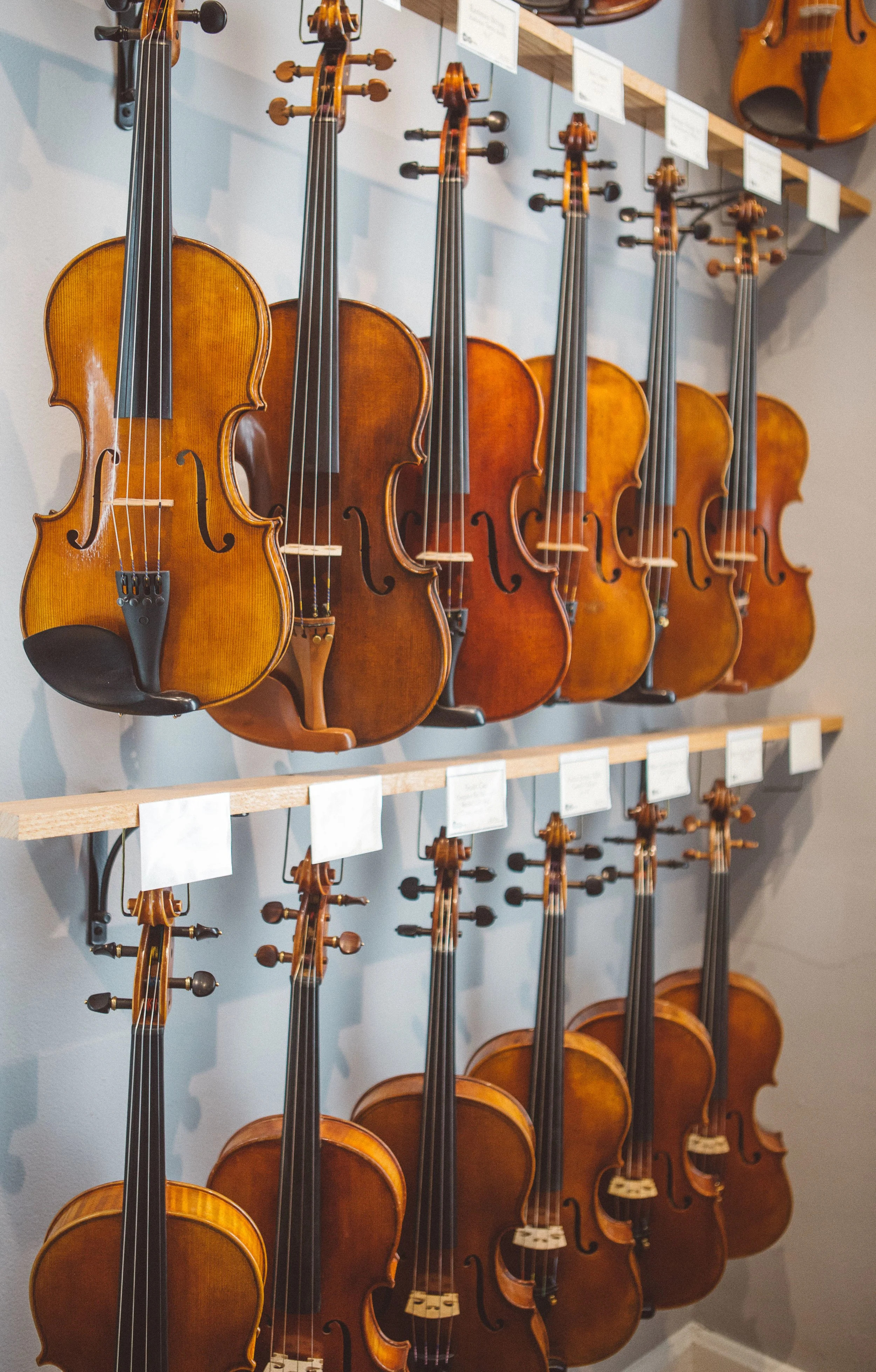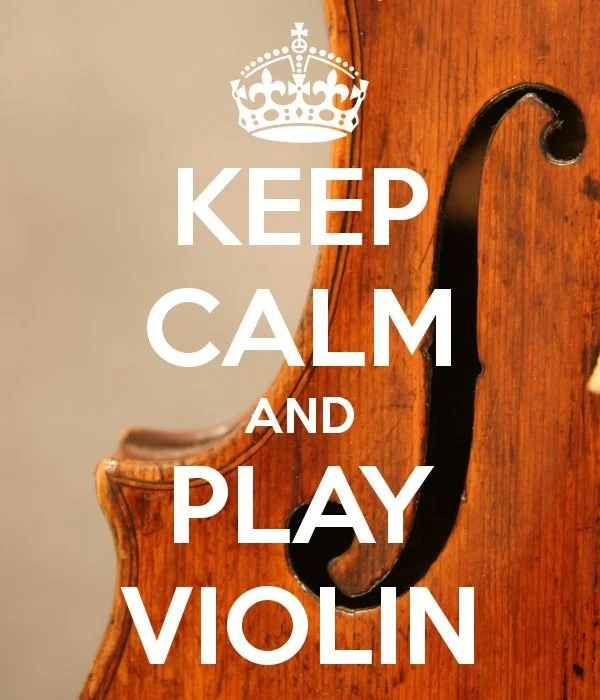WORKING WITH A VIOLIN TEACHER
Should I work with a violin teacher?
For students who want to learn to play the violin for personal interest or as a hobby, the question often arises as to whether or when it is necessary to work with a teacher. This question has become even more pressing with the proliferation of videos on YouTube and other platforms about learning to play the violin or any other instrument. Of course, I am a violin teacher myself and I really enjoy teaching, but that is exactly why I am interested in students who have the right motivation. Therefore, I think that each student's answer must be given in relation to three considerations: (1) what level we want to reach; (2) with what degree of satisfaction we want to do it; (3) how much effort we are willing to invest, both in terms of money and time.
Regarding the first point, we must keep in mind that self-observation provides limited guidance for effective learning and self-correction is often unreliable. In addition, it is not easy to navigate through all the materials available online, nor to discern which are valid and which are not (there are many videos, no doubt made with the best of intentions, that simply teach in the wrong way).
As for the second point, the presence of a teacher makes the activity more stimulating and rewarding; every student has doubts and the possibility of consulting him in a precise and immediate way always gives greater security. On the other hand, the teacher will create a coherent and reliable teaching strategy adapted to the learner, based on his or her knowledge and experience. Moreover, learning does not have to be a solitary activity.
Finally, in the third point, I mentioned the financial and time investment. We should think of both kinds of investment together: teaching involves correction and the need for practice; it makes no sense to invest money in teaching if you are not able to devote the necessary time to practice what you have learned. Both investments, financial and temporal, will depend on the ambition of the student. For this reason, I always recommend having clear conversations with potential teachers to check if the student's expectations are in line with their availability. In my years of teaching experience, I have found that extraordinarily satisfactory results can be achieved with very different combinations of classes, time and effort. The important thing is to know what the goals are and to tailor the lessons to those goals. Each student, with the help of a teacher, should be able to find his own way according to his circumstances.
Basics of working with a violin teacher
Working with a violin teacher can help you achieve your musical goals and improve your skills on the instrument. Finding the right teacher can be a challenge, but it's important to find one that matches your musical level and personality to ensure a comfortable and effective learning environment. Lessons with your violin teacher may cover a range of topics, from curriculum and lesson content to music theory and technique. You can choose from private, school or online lessons, each with its own advantages and disadvantages. A good violin teacher should have teaching skills, adaptability and a passion for music.
➤ Private, school or online: when it comes to taking violin lessons, there are several options. You can choose between private, school or online lessons. Each option has its pros and cons, and what works for one student may not work for another. For example, online lessons mean that you take classes over the Internet, usually using video conferencing software. This can be an advantage because you can take classes from anywhere in the world, saving time and money on transportation and having a wider range of teachers to choose from. In addition, online lessons may be more flexible than private or school lessons because you can schedule them at your convenience.
➤ Frequency: the most common frequency for violin lessons is once a week, but this can vary depending on your commitment and the availability of your teacher. The length of the lesson can also vary, from 30 minutes to an hour. It is important to find a frequency and duration that works for you and your schedule.
➤ Theory: learning music theory and technique is essential for any violinist. Your teacher should be able to teach you the basics of music theory, including reading music, understanding rhythm and timing, and identifying different musical notes.
Characteristics of a good violin teacher
➤ Constructive: a good violin teacher will tell you how to play the violin in a way that is easy to understand and will be patient and encouraging when you make mistakes. They should be able to give you clear and constructive feedback to help you improve your technique.
➤ Adaptability: every student is different and a good violin teacher should be able to adapt their teaching methods to suit your needs. They should take the time to understand your strengths and weaknesses and create a lesson plan that fits your goals.
➤ Inspiring: a teacher who loves music will inspire you to love music. They should be knowledgeable about different styles and genres and be able to share that knowledge with you.
➤ Clear: clear communication is essential when working with a violin teacher. The teacher should be able to explain concepts and techniques in a way that you can understand. They should also be accessible and available to answer any questions you may have.
➤ Trial lessons: the best way to determine if a teacher is right for you is to have a trial lesson. This will allow you to see first hand if their teaching style and personality is right for you.
Frequently asked questions
-
You can find a violin teacher through a music school, classified ads, or online directories such as Yelp or Angie's List.
-
Look for a teacher who has experience playing the violin and teaching students at your level. A good teacher should be patient, encouraging and able to adapt to your learning style.
-
That depends on your preferences and circumstances. Face-to-face lessons allow for more individualized feedback and easier communication, while online lessons offer more flexibility and convenience.
-
While it's possible to teach your child to play the violin on your own, it's generally recommended that you find a qualified teacher who has experience working with young students. Look for a teacher who is patient, encouraging and able to adapt to your child's learning style.
-
In your first lesson, your teacher will probably assess your current skill level, discuss your goals and begin to develop a plan for your lessons. You may also learn basic techniques such as bow holding and open string playing.
-
Finding the right violin teacher can make a huge difference in your progress as a musician. A good teacher can motivate you, provide helpful feedback and guide you through your musical journey.
-
That depends on your preferences and goals. Group lessons can be a great way to meet other musicians and learn in a supportive environment, while private lessons offer more individualized feedback and the opportunity to progress at your own pace.
-
Look for a teacher who has experience playing the violin at a high level and who has experience teaching students at your level. Also look for any additional qualifications or certifications that may be relevant, such as a degree in music education or experience with a particular teaching method.
-
A person with experience teaching the violin may become a private teacher, a music teacher in a school or university, or a performer in an orchestra or chamber group.
-
If you're not happy with your current violin teacher, it's important to have an open and honest conversation about your concerns. If your concerns cannot be addressed, it may be time to look for another teacher who is a better fit for your needs.
READ MORE ARTICLES
Quick video tips
““Teaching involves correction and the need for practice; it makes no sense to invest money in teaching if you are not able to devote the necessary time to make use of what you have learned.””



























